| When JK Rowling was outed as the author of The Cuckoo's Calling, she responded just like her new novel's killer. She began with a bit of casual amusement ("I had hoped to keep this secret a little longer") before her mood soured to outright rage ("To say that I am disappointed is an understatement…I feel very angry"). It's hard to blame her. After all, she had drawn up her pseudonymous author, ex-Royal Military Police officer Robert Galbraith, with the precision of the perfect crime. Alas, neither her secret authorship nor the killer remain at large in Rowling's 9th novel, a speedy little murder mystery as quick as it is clever. She abandons the 20-character, 200-page opening slog that began The Casual Vacancy (her last book), as she introduces a dead body on page one and the principal characters by page 10. It's a pleasing adjustment for Rowling, whose tendency to linger on exposition only grew throughout her famous Harry Potter series. A speedy plot still deserves compelling characters, and here, Rowling delivers. Her detective, Cormoran Strike, provides a welcome departure from the Sherlocks and Poirots of classic crime. Lumbering, lovelorn, and a little lazy, Strike's large physical presence and grunting interviews give the book's hero a flash of blue-collar charm. He may be British, but he lacks the intellectual snobbery so standard among literature's most popular private eyes. Better yet, Strike's very own Watson—25-year-old Robin Ellacott—steals the page, her slight frame and polished disposition an amusing complement to her rotund, bumbling superior. With Robin, Rowling attempts to win over old fans: just as the Potter series played up teenaged boarding school blues, The Cuckoo's Calling takes amusing jabs at Robin's post-college search for employment. To (multimillionaire) Rowling's credit, she can still capture the dark humor of joblessness. Of course, one would only expect Rowling to nail her characters; it's her whodunit instincts that have missed nearly as much as they've hit. Her riddles in the Sorceror's Stone--as tidy as a freshly swept porch—proved she could handle the basics. She stumbled with Chamber of Secrets (the big reveal had all the fanfare of a mouse squeak), then produced a few workhorse puzzles in Prisoner of Azkaban and Goblet of Fire (surprise endings with just enough clues not to feel cheap). It wasn't until Half-Blood Prince that she wrote a fully mature mystery, weaving dark pasts, ample clues, and a few proper red herrings into a single novel. Regrettably, she regressed with Deathly Hallows, leaning too heavily on a set of intricate wand-ownership rules that proved far more confusing than clever. As such, I can report—with equal measures enthusiasm and relief—that The Cuckoo's Calling is a fine mystery. The scene of the crime invites a dozen different possibilities. The suspect list hits all the notes you'd hope (the curmudgeon, the estranged friend, the worried sibling, the wily colleague, the man who knows too much, the woman who should know more). The interviews ooze misdirection and a handful of key details seem to defy explanation. After her spotty history, one can't help but feel that Rowling's crime inclinations were there all along, buried beneath a growing catalog of magical rules and sprawling plot lines. Still, there's nothing in The Cuckoo's Calling as diabolical as Agatha Christie's best work, nor as engrossing as anything by Dorothy Sayers. Long-time crime readers will solve the murder well before the novel's conclusion (even if bits and pieces of the method will remain elusive). Rowling has learned the rules of mystery well. Now she must learn to bend and twist them to her will, fooling even her smartest readers by using their crime novel instincts against them. Indeed, the best mysteries are their own kind of magic. | My Harry Potter Ranking7. Deathly Hallows (book 7) Bloated and sometimes boring, Deathly Hallows abandons the comfy confines of Hogwarts School of Witchcraft and Wizardry, dragging readers into abandoned woods and through a convoluted treatise on wand ownership. A disappointing finale. 6. Chamber of Secrets (book 2) A transitionary novel, Rowling seems caught between a kid's book and a young adult novel. A memory from an old diary hits a few intriguing notes early, but Chamber of Secrets ends up the series' most forgettable entry. 5. Sorcerer's Stone (book 1) A fine children's book and witty introduction to the world of Potter, Sorcerer's Stone lacks the depth and challenging themes of the series' subsequent novels. 4. Order of the Phoenix (book 5) The most thematically ambitious of the Potter books, Order of the Phoenix pits Harry and his few allies against a slyly ominous, overreaching government. Only an overly-angsty Harry (Rowling overplays his teenaged moodiness) and an indulgent length (100 pages too long) mars an otherwise excellent entry. 3. Prisoner of Azkaban (book 3) Showcasing the tightest plot of the series, Prisoner of Azkaban is near-perfect in its pacing, all the way through its time-shifting, death-dodging finale. My favorite resolution in the series. 2. Half-Blood Prince (book 6) The most thoughtful of the Potter novels, Half-Blood Prince mesmerizes. With haunting flashbacks, a genuine mystery, and the most tragic moment in the entire series, Rowling displays a storytelling maturity years beyond the uncomplicated whimsy of Sorcerer's Stone. 1. Goblet of Fire (book 4) More fun and more consistently riveting than any other entry, Goblet of Fire's 734 pages read faster than Sorcerer's Stone's 309. An evocative final encounter and stunning reveal push the book just past Half-Blook Prince for the top spot on my list. |
|
521 Comments
He brought back the director (Gus Van Sant). He donned the same pouty, misunderstood face. He even co-wrote the script with another classically handsome, questionably capable actor (John Krasinski instead of Ben Affleck). But with Promised Land, Matt Damon fails to recapture the magic of Good Will Hunting, the 1997 feel-good drama about a gifted young man and his unconventional therapist.
I'm not a music critic by trade, but I'll take any opportunity to create a̶n̶ ̶a̶r̶b̶i̶t̶r̶a̶r̶y̶ a smart scoring rubric. Example: my thorough assessment of 2012's best film Today's Candidates: Yeezus by Kanye West Random Access Memories by Daft Punk Modern Vampires of the City by Vampire Weekend The Formula LY x 0.3 + PV x 0.2 + CT x 0.1 + MU x 0.4 = Overall Score where LY = Lyrics PV = Production Value CT = Catchiness MU = Musicality The Categories Lyrics (30%) Does the album raise important questions about life and/or provide thoughtful commentary on society? If not, do the songs at least sound clever? If not, do the lyrics at least avoid making the listener dumber? Production Value (20%) Does the record sound polished? Do the studio effects complement the melodies, distract from the melodies, or both? Catchiness (10%) When you finish the album, do you want to listen to the songs again? That sound you heard was a couple dozen music snobs closing their browser. But catchiness does matter to most of us, at least a bit. Musicality (40%) This catch-all category encompasses everything outside of the lyrics, production value, and catchiness. In other words, how good are the songs at their most foundational level? Are they thoughtfully constructed? Do the artists take risks? Do the various instruments and vocalists work together convincingly? Yeezus - Kanye West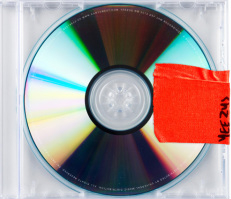 My take, pretending to be a music critic Yeezus is a study in extremes. The record swings from nihilistic to desperate to hopeful, all in 40 short minutes. Kanye blends bold compositional risks with choice sampling, weaving rap, soul, electronica, and punk. Though the lyrics prove unchallenging, the beats themselves demand repeat listening. There's nothing on here as catchy as hits like Heartless or Gold Digger, but there's nothing as safe either. Like the title of album itself, Yeezus is an enigma. But for a generation raised on Katy Perry and Justin Bieber? Perhaps it's just what we need. My take, just being me Somehow, Kanye wrests the "Worst Lyrics of 2013" award from the manicured hands of Justin Timberlake. These are actual lyrics from a track called "I Am A God:" I am a god I wish I could say, "I can't make this stuff up," but the sad fact is: I could easily make this stuff up. To wit: I am a god Scoring Summary The tracks below will play in Spotify when clicked. Not signed up? Click here to join for free. Best tracks: New Slaves, Black Skinhead Worst track: I'm In It Lyrics: 2 / 10 Production Value: 9 / 10 Catchiness: 3 / 10 Musicality: 9 / 10 Overall Score: 6.3 / 10 Random Access Memories - Daft Punk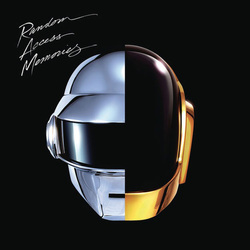 My take, pretending to be a music critic More human, more instrumental, and more immediately accessible than much of Daft Punk's previous work, Random Access Memories does several things right and few things wrong. Disco-influenced "Giorgio by Moroder" proudly displays Daft Punk's mastery of groove while "Lose Yourself to Dance" and "Get Lucky" feature fresh, human vocals far removed from the mechanical warbles of Punk past. At their most fundamental, none of the songs on Memories have the creative structure of those on Yeezus, but it hardly ends up mattering. No band does a standard 2-5-1 chord progression like these guys. My take, just being me Stephen Colbert famously asked several liberal pundits and politicians whether George W. Bush was a "great president" or "the greatest president." It's a familiar meme that's taken several forms online. My personal favorite? Bad vs. Best. Ex: "The Voice…Bad show? Or BEST show?" That's the same question I have about Daft Punk. Are they a bad band, or the BEST band? I'm being entirely serious. The grooves are simultaneously immaculate and repetitive. The lyrics aren't awful (see West, Kanye); they're just nothing special. But sometimes I think they might be brilliant. To me, Daft Punk has the same sort of mystical power as a John Edward psychic reading, Pantene Pro-V shampoo ad, or pancake spatula informercial. On some level, it's all nonsense, but give me two beers and deep tissue massage and I'll believe every word. Scoring Summary Best tracks: Giorgio by Moroder, Lose Yourself to Dance Worst track: Touch Lyrics: 5 / 10 Production Value: 9 / 10 Catchiness: 8 / 10 Musicality: 6 / 10 Overall Score: 6.5 / 10 Modern Vampires of the City - Vampire Weekend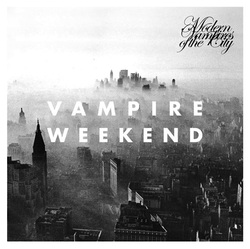 My take, pretending to be a music critic Sometimes witty and always vulnerable, Modern Vampires of the City explores the loss of relevance, love, and faith. "You ought to spare your face the razor," sings Ezra Koenig in the record's opening track, "because no one's gonna spare the time for you." Unlike Vampire Weekend's first two albums, Modern Vampires keeps the cleverness in check, trading nimble wordplay for deeper, more thoughtful material. "Obvious Bicycle" laments irrelevance. The haunting "Hannah Hunt" masquerades as a routine ballad, only to wallop the listener with the suffocating sadness of a couple doomed to fail. "Worship You" and "Ya Hey" explore Koenig's faltering belief—he seems ready to leave his faith behind, but his uncertainty lingers on every note. Meanwhile, multi-instrumentalist Rostam Batmanglij balances creativity and subtlety perfectly, respecting Koenig's vocals, yet injecting each track with his trademark experimentation. What results is an album that deserves two careful listens: one for the story and another for the deft musical innovation. A sonic delight. My take, just being me Between an album about African American culture and the excesses of wealth (Yeezus), a disco-tribue record from a couple of French dudes (Random Access Memories), and Modern Vampires of the City, perhaps it's no wonder that I resonate most with the preppy, Ivy League-educated group of white guys struggling through their late-twenties. Though a few of the album's tracks border on sacrilegious (ex: the repeated chanting of "Ya Hey;" the "Worship You" track that sounds just like the latest David Crowder Christian hit), I can identify with Koenig's struggle with faith, even if he and I have reached separate conclusions. And that Hannah Hunt song—down to its description of Santa Barbara beaches—is almost eerie in its mirroring of my own experiences. It's rare that I connect with a new album so immediately, but such is the case with Modern Vampires of the City. Scoring Summary Best tracks: Hannah Hunt, Unbelievers Worst track: Don't Lie Lyrics: 9 / 10 Production Value: 8 / 10 Catchiness: 7 / 10 Musicality: 8 / 10 Overall Score: 8.2 / 10 With a silly title, safe plot, and Brad Pitt hair mop to make Tom Brady jealous, World War Z might seem like a dead film walking. Instead, it's a feisty thriller that does nearly everything right.
|
TheCroakingFrog
|

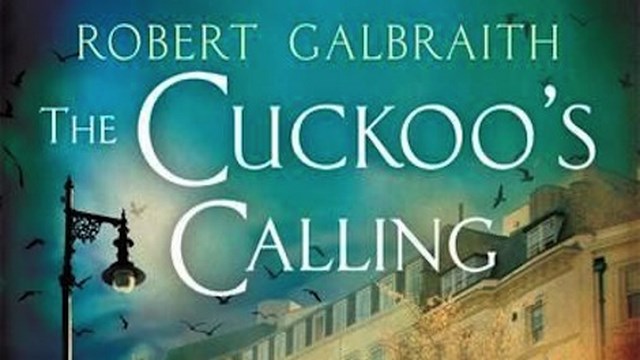
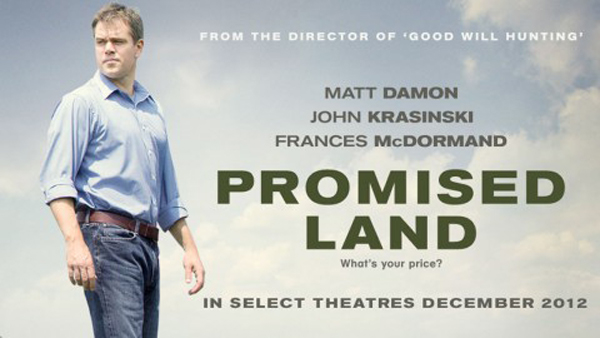


 RSS Feed
RSS Feed
